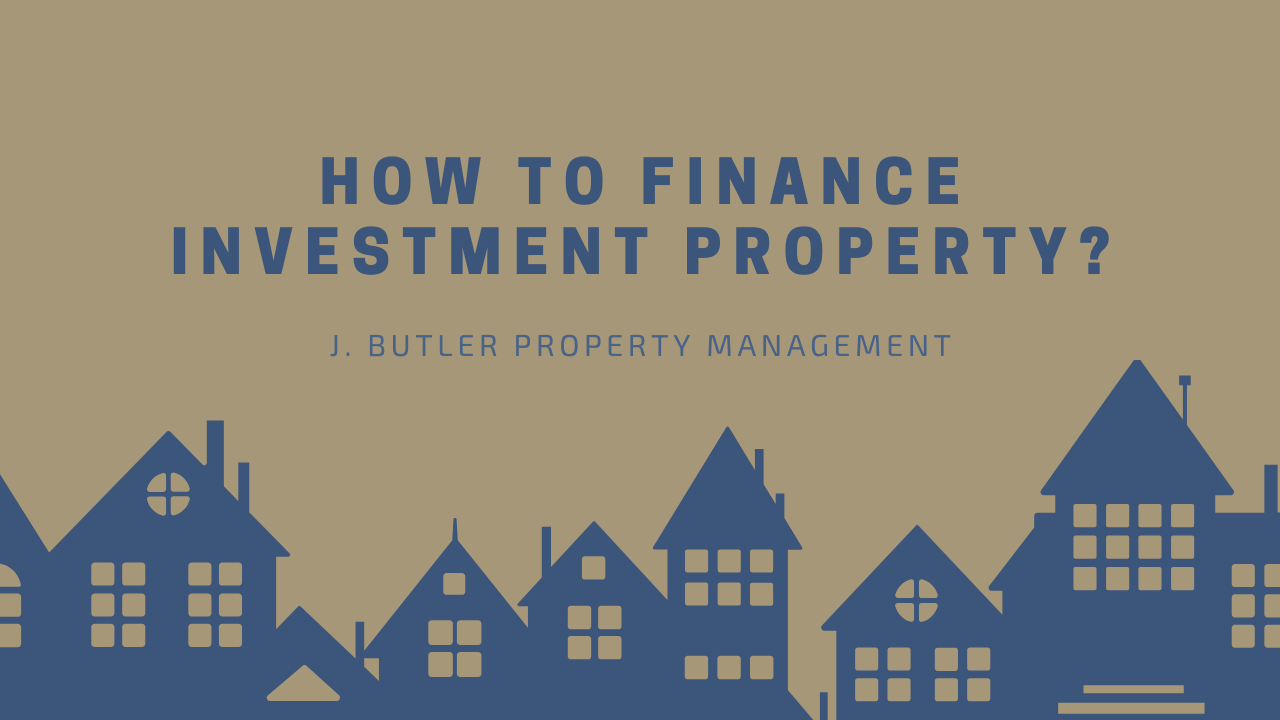
How to Finance Investment Property?
November 27, 2024
How to Finance Investment Property?
Are you looking to grow your portfolio but feeling uncertain about the best ways to finance an investment property? As a landlord, finding reliable financing options can make all the difference in expanding your investments without overextending your resources. Today’s market offers a variety of financing strategies—from conventional loans to creative funding options—that can help you secure properties while managing cash flow effectively.
In this guide, J. Butler Property Management will explore how to navigate these financing options, evaluating what works best depending on your goals, property type, and financial circumstances. With the right approach, you can unlock opportunities to build wealth strategically, ensuring your investments work smarter for you in the long run.
Understanding Your Financing Needs as a Landlord
Every landlord’s financial situation is unique, and recognizing your specific needs is essential. Consider factors like how much capital you can allocate upfront, your risk tolerance, and the type of property you’re aiming to finance.
Are you looking to flip a property for short-term gain or hold it for long-term rental income? By identifying your goals, you can more effectively evaluate financing options that align with both your cash flow and investment strategy.
Traditional Loan Options: Mortgages and Bank Financing
Traditional mortgages and bank financing are among the most common ways to fund an investment property. They generally offer competitive interest rates and predictable payment schedules, which can simplify budgeting.

However, they often come with strict credit and income requirements, plus larger down payment expectations than primary residences. Understanding the criteria lenders will look for, such as debt-to-income ratios and credit scores, can help you prepare for a successful application process.
Private Money Loans: A Flexible Alternative
Private money loans, which are funded by individual investors or companies, can be a useful alternative for landlords who need more flexibility. These loans typically offer quicker access to capital, fewer qualification requirements, and more negotiable terms.
Although they often come with higher interest rates, private loans can be ideal if you’re looking to seize an investment opportunity quickly or if traditional lenders are hesitant due to property type or personal credit issues.
Hard Money Loans: When Speed Is Essential?
Hard money loans are short-term loans secured by the property itself rather than by your personal financial profile. Often used for flips or quick-turnaround projects, they provide fast funding and are popular among investors seeking to move quickly on a property. These loans tend to have higher interest rates and shorter repayment terms, but for landlords needing immediate capital to close a deal or renovate a property, hard money loans can be a practical choice.

Leveraging Home Equity for Investment Property Financing
For landlords who already own property, tapping into your home equity through a Home Equity Loan or a Home Equity Line of Credit (HELOC) can provide a cost-effective way to finance additional investments.
This option typically offers lower interest rates compared to other loan types because it’s secured by your existing property. Leveraging home equity allows you to access funds without selling an asset, giving you flexibility and preserving your cash reserves for future investments.
Understanding Debt-to-Income Ratios and Credit Requirements
Lenders often assess your financial stability through your debt-to-income (DTI) ratio and credit score, which can greatly influence your loan options. A lower DTI ratio indicates a stronger financial position and may qualify you for better loan terms.
Similarly, a solid credit score opens doors to lower interest rates and a broader range of financing options. For landlords, optimizing these metrics can be the difference between a smooth approval process and added financing challenges, so preparing in advance is key.
Utilizing Partnerships to Secure Funding
Partnering with other investors is an increasingly popular financing option, particularly for larger or riskier investments. In this arrangement, multiple parties contribute capital, often sharing profits proportionally.

Partnerships allow you to pool resources, potentially enabling you to pursue higher-value properties or spread risk across multiple investors. However, clear communication and well-defined terms are crucial to ensure a successful partnership. For landlords seeking to grow quickly without taking on excessive debt, partnerships can offer a solid solution.
Creative Financing Solutions: Lease Options and Seller Financing
Creative financing solutions, such as lease options and seller financing, provide alternative routes to property ownership without traditional loans. A lease option allows you to rent a property with the choice to buy at a future date, which can be useful if you’re testing the property’s income potential.
Seller financing, similar to owner financing, can help when conventional loans aren’t feasible. Both options allow landlords to expand their portfolios strategically, but they often require careful planning and a thorough understanding of contract terms.
Key Tips for Securing the Best Financing Terms
Securing favorable financing terms for an investment property can make a substantial difference in your long-term profitability. A few essential steps will help landlords navigate the process confidently and maximize their chances of favorable loan conditions.

- Organize Documents: Keep financial records ready, like tax returns and bank statements, to show lenders a stable, prepared financial picture and speed up the approval process.
- Boost Credit Score: Improve credit by paying off debts and avoiding new credit inquiries, which opens the door to better rates and terms, saving costs long-term.
- Choose the Right Loan Type: Familiarize yourself with various loan options to match your investment goals and streamline the application.
- Build Local Lender Relationships: Working with local lenders can provide flexibility and help you secure personalized financing terms.
- Showcase an Investment Plan: Presenting a detailed plan of rental income and goals increases lender confidence and may lead to better loan conditions.
- Negotiate Terms: Negotiate aspects like rates and fees; even small savings can improve your property’s profitability over time.
Partner with J. Butler Property Management: Your Key to Smart Financing Decisions
Navigating investment property financing can be complex, but J. Butler Property Management is here to help you make informed choices. With expertise in real estate finance and property management, their team can guide you through each financing option, ensuring you select the best fit for your investment goals.
Reach out today to discuss tailored solutions that support both your financial health and your portfolio’s growth, setting you up for lasting success.


